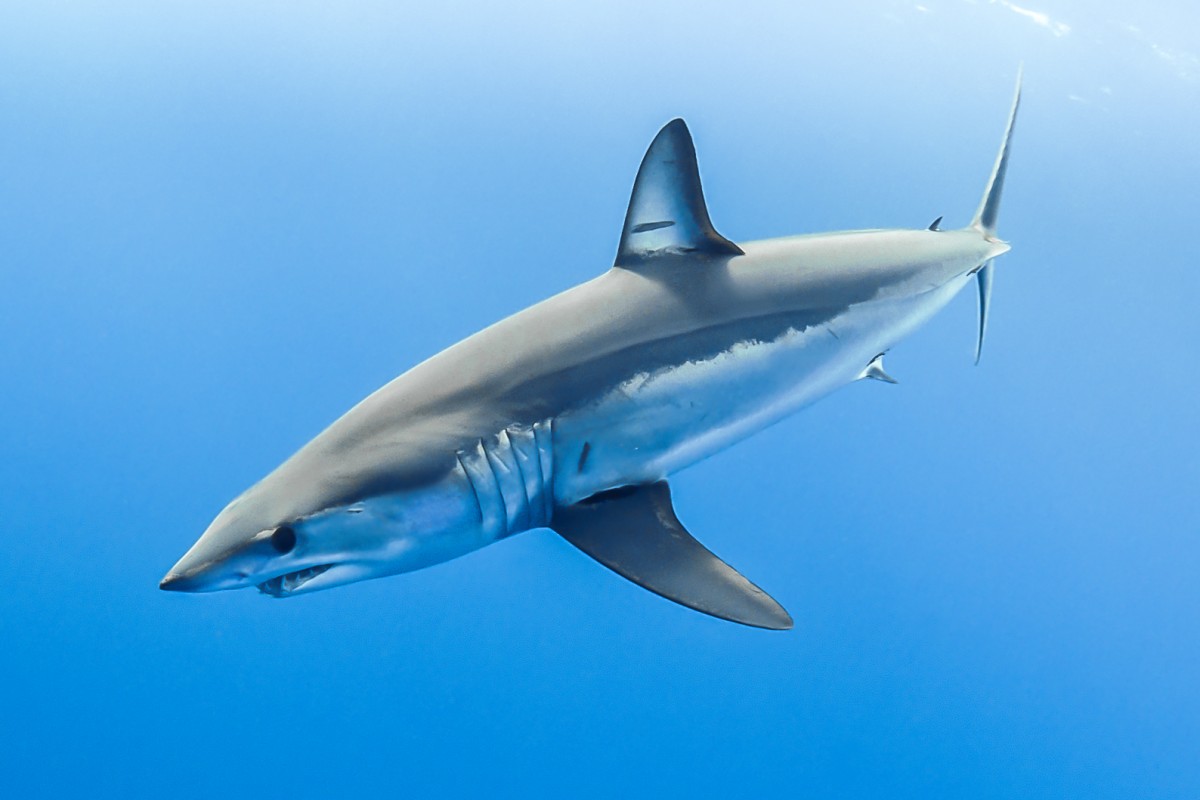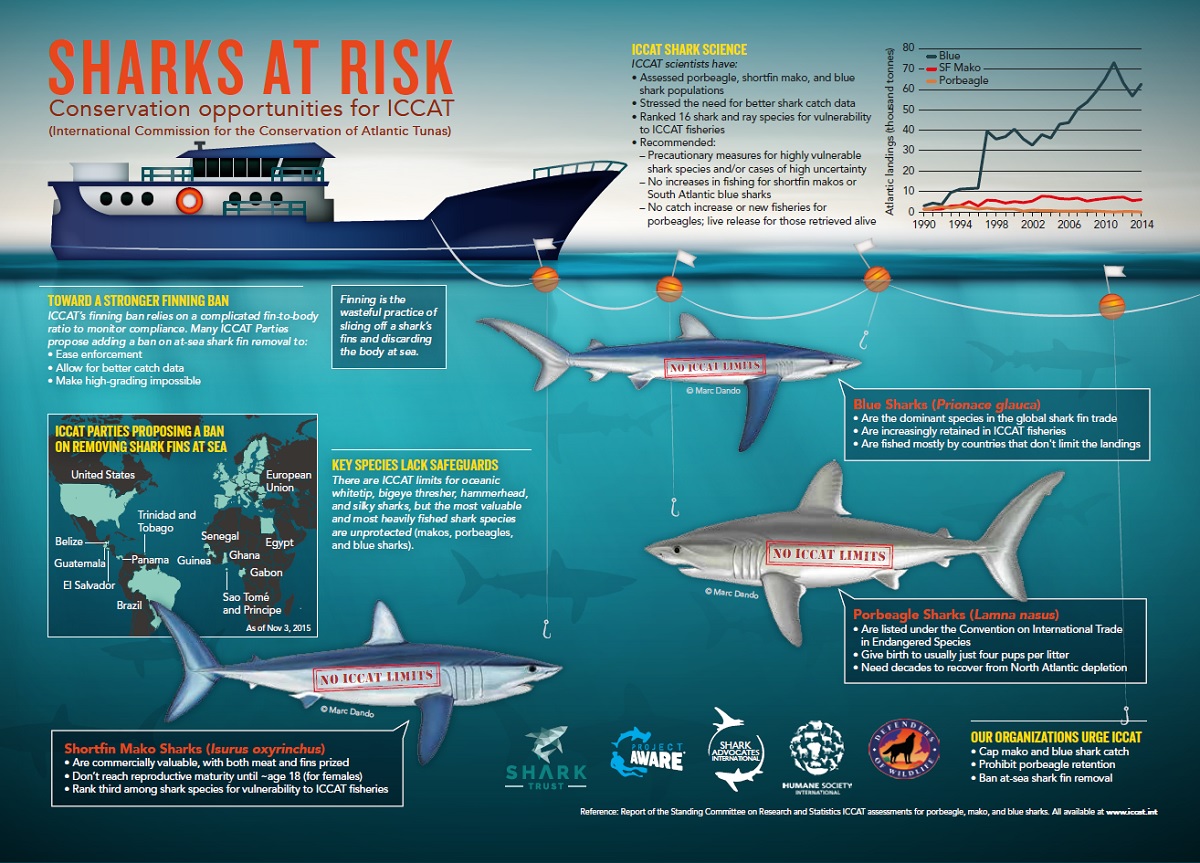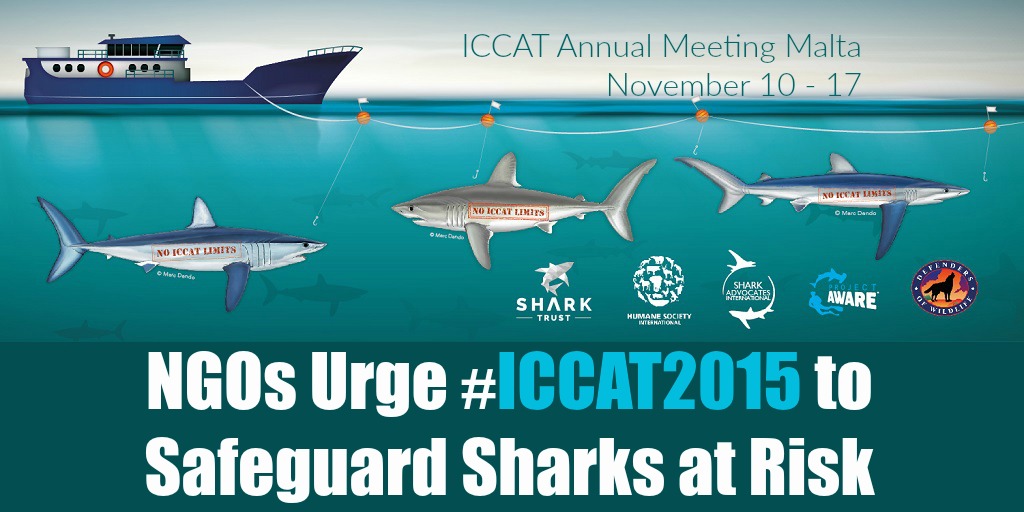NGOs Urge ICCAT to Protect Sharks at Risk

Overfishing, including through finning and bycatch, is taking a serious toll on shark populations - threats that will continue if shark fishing remains largely unmanaged in the world’s ocean.
In November, Parties of the International Commission for Conservation of Atlantic Tunas (ICCAT)* have the opportunity and the scientific basis to take positive steps towards effective shark management in the Atlantic.
Project AWARE and partner NGOs, Shark Advocates International and The Shark Trust, are collaborating to promote the adoption of science-based shark management measures at the 24th Regular ICCAT meeting taking place this year in Malta, 10-17 November.
Why? Sharks are caught in ICCAT fisheries, often incidentally, but increasingly intentionally as the value of their fins remains high and demand for their meat grows.
There are no ICCAT limits on commercially important shark species, such as shortfin makos, porbeagles and blue sharks, despite scientific advice to cap catches.
A proposal for a stronger shark finning ban (through a ban on at-sea fin removal) already has 14 ICCAT co-sponsors. Proposals to limit mako landings and protect porbeagles are also on the table, while one to cap blue shark catches is expected soon.
"We’re hopeful that key shark conservation measures will be taken at this year’s meeting to safeguard these highly vulnerable species." comments Ania Budziak, Project AWARE Associate Director Programs.
Project AWARE together with partner NGOs is urging ICCAT to:
- Establish precautionary caps on shortfin mako and blue shark catches;
- Prohibit the retention of porbeable sharks;
- Require that sharks be landed with all fins still naturally attached; and
- Expand the Convention scope for enhanced conservation of elasmobranchs.
 Project AWARE is attending ICCAT 2015 with like-minded NGOs to advocate for shark conservation steps that adhere to scientific and precautionary approach, as well as push for changes to the ICCAT Convention text that will facilitate more comprehensive management of shark fishing over time. The meeting will be attended by some 600 delegates from all over the world.
Project AWARE is attending ICCAT 2015 with like-minded NGOs to advocate for shark conservation steps that adhere to scientific and precautionary approach, as well as push for changes to the ICCAT Convention text that will facilitate more comprehensive management of shark fishing over time. The meeting will be attended by some 600 delegates from all over the world.
Our ongoing shark advocacy and policy workaims for national, regional and global conservation actions that heed scientific advice for limiting shark catches; fully protect shark species listed by the IUCN as Endangered or Critically Endangered; set precautionary shark fishing limits [where no advice exists]; and ensure all sharks are landed with their fins naturally attached (to prevent finning).
Please support Project AWARE’s Shark in Peril campaign and learn more about how your support is making a difference. Overfishing, finning and bycatch are taking a serious toll on shark populations. Now is the time to act!
Position Statements:
- ICCAT 2015: Sharks At Risk Infographic
- ICCAT 2015: Panel 4 NGOs Position Statement
- ICCAT 2015: Joint Letter to Canada
- ICCAT 2015: Joint Letter to US
- IUU Task Force 2015 Joint Letter
- ICCAT 2015 Joint Letter: EU Leadership for Shark Conservation at ICCAT
*ICCAT is responsible for the conservation of tunas and tuna-like species in the Atlantic Ocean and adjacent seas. ICCAT has 49 Contracting Parties, including the European Union. ICCAT adopted protections for bigeye thresher sharks in 2009, oceanic whitetip and hammerhead sharks in 2010, and silky sharks in 2011.
Photo courtesy of Katrien Vandevelde - BlueShark Conservation




